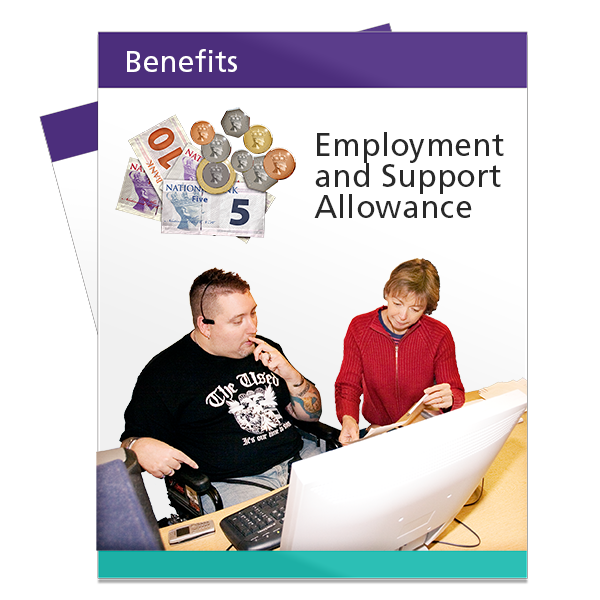57% of people with a disability said that the amount they currently received was not enough to live on with almost a third (28%) of disabled people couldn’t afford to eat, and over a third (38%) have been unable to heat their home.
Led by Independent Crossbench Peers; Lord Low, Baroness Meacher and Baroness Grey-Thompson the Review finds that the cut will hinder not help
the Government
 The Government are the people who run the country. The Government decide how much tax people should pay and how things like the National Health Service (NHS) should work.
’s aim to get more disabled people into work.
The Government are the people who run the country. The Government decide how much tax people should pay and how things like the National Health Service (NHS) should work.
’s aim to get more disabled people into work.
The Review sets out clear evidence from a range of sources highlighting the danger of this cut to ESA for future claimants in the Work Related Activity Group (WRAG). Currently there are close to half a million disabled people or mental health conditions in this group, 241,000 of which have mental health problems, a
learning disability
 A learning disability is to do with the way someone's brain works. It makes it harder for someone to learn, understand or do things.
and
autism
A learning disability is to do with the way someone's brain works. It makes it harder for someone to learn, understand or do things.
and
autism
 Autism is a disability. Autistic people find it difficult to understand what other people think and feel. They also find it difficult to tell people what they think and feel. Everyone with autism is different.
. All of whom have been found currently unfit for work.
Autism is a disability. Autistic people find it difficult to understand what other people think and feel. They also find it difficult to tell people what they think and feel. Everyone with autism is different.
. All of whom have been found currently unfit for work.
The Review finds that the Government has offered no credible evidence to support their view that cutting this benefit will ‘incentivise’ disabled people to get into work. In fact disabled people responding the review overwhelming said that such a cut would lead to a worsening of health conditions, particularly mental health as they are pushed further into poverty and as such are less likely to be able to take steps toward work.
The Review comes at a crucial time as the cut is being debated in the House of Lords as part of the Welfare Reform and Work Bill on Wednesday 9th December. Politicians from across all Parties have expressed concern on this cut and that it would negatively affect sick and disabled people.
The Review is supported by a secretariat comprising of Leonard Cheshire Disability, Mencap, the National Autistic Society, MS Society, Mind, RNIB and Scope. The secretariat put out a call for written evidence which resulted in 30 organisations responding as well as nearly 200 disabled people.
The review highlights concerns of how a cut to ESA-WRAG would lead to:
- people unable to undertake ‘work related activity’ such as training, volunteering, travel to work focussed interviews and so on
- worsening health conditions caused anxiety and stress from not being able to pay bills, medication and in some cases clothes and food
- have a negative impact on their health
- social isolation and not having the ability to leave their homes and access their
community
 A community is the people and places in an area.
A community is the people and places in an area.
- additional costs to the NHS and social care services for those whose health deteriorates from the reduced support from benefits they receive.
The review also highlights recent research* conducted by60 national charities of over 500 disabled people that found:
- almost 7 in 10 (69%) disabled people surveyed say
cuts
 Cuts are when there is less money to pay for things like clubs and support.
to ESA will cause their health to suffer
Cuts are when there is less money to pay for things like clubs and support.
to ESA will cause their health to suffer - almost half (45%) of respondents say that the cut would probably mean they return to work later
- a third (28%) surveyed say they can’t afford to eat on the current amount they receive from ESA
- 40% of respondents have become more isolated and less able to see friends or family after their ESA was withdrawn or reduced.
Jan Tregelles, chief executive of Mencap said:
“This Parliamentary Review looks at the impact on disabled people of the £30 a week cut to ESA WRAG, something the Government has failed to carry out. This Review shows that the cut would directly hinder the Government’s desire to halve the disability employment
Employment means having a job. gap, and instead push disabled people further away from employment, closer to poverty and actively harm people’s health.
"Cuts to people’s benefits are clearly having a huge impact on the lives of disabled people and with further cuts being planned the impact is only likely to get worse. We know from speaking to people with a learning disability and their families that they are very concerned that the cuts to benefits and social care are likely to leave people being left isolated in their own communities. We call on politicians from all sides to urgently assess this new evidence and ensure that they stop the harmful effects cutting ESA-WRAG will have on disabled people in the UK.”
Paul Farmer, chief executive of Mind, said:
"Reducing the financial support available to people who cannot work because of illness or disability will make people’s lives even more difficult and will do nothing to help them return to work.
“People being supported by ESA receive a higher rate than those on JSA because they face additional barriers as a result of their illness or disability, and typically take longer to move into work. Almost 60 per cent of people on JSA move off the benefit within 6 months, while almost 60 per cent of people in the WRAG need this support for at least two years. It is unrealistic to expect people to survive on so little money per week for this length of time. We’re concerned that the impact of these changes will be felt by our overstretched NHS services, as these cuts hit individual’s mental health as well as their pockets.
“It is insulting and misguided to imply that ill and disabled people on ESA will be more likely to move into work if their benefits are cut. The vast majority of people with mental health problems want to work but face significant barriers as a result of the impact of their condition and the stigma they often face from employers."
Lord Low of Dalston and Vice-Chairman of RNIB said:
“The review finds no evidence that the £30 a week disabled people receive as part of ESA-WRAG is acting as a disincentive to work and thus there appears no justification for this reduction in payment.
“In fact our review found that the current ESA rate is already not enough to work as an income replacement considering that claimants are often, through no fault of their own, out of work for a considerable time. The Government should halt this cut and instead introduce better and more personalised and tailored support to help disabled people who can work take steps to do so.”
Quotes from individuals and organisations who responded from the call to evidence:
“Research has shown that people with mental health conditions and learning disabilities are considerably more disadvantaged than other impairment groups, in terms of employment rate, type of work and level of unemployment, so reducing the amount would not work as an incentive to find work but may push people further from the job market, struggling to make day to day living costs. In addition less financial support could lead to food poverty and a deterioration in the mental and physical health of claimants moving them further away from employment.” (Hackney Council)
“Cancelling my phone and internet means I would not be able to make calls regarding workplace volunteering that I want to do or make job applications when I am ready. I would also no longer be able to afford smart clothes which you need for work.” (Individual response)
‘I was horrified to learn that the money I receive is due to be reduced by £30 per week. I have three children under 13 years of age and rely entirely on the money received, it's likely that I'll never be well enough to get out of the WRAG let alone seek employment, I already know my condition is degenerative and there's no chance of getting any better! So a reduction of £30 per week will force my family well below any poverty line, leaving us little option but to seek help from a food bank, just so my family don't starve! We are already struggling, we don't live beyond our means nor go on holidays, the thought of losing more money will truly be devastating.’ (Individual respondent)
“The impact would be massive. I would have to make the saving on food in order to still pay for gas and electricity. This means I would, in reality, have to rely on food banks sometimes." (Individual respondent)
-ENDS-
For further information or to arrange interviews, please contact the Mencap press office on 020 7696 5414 or media@mencap.org.uk.
Notes to editors
* The group of charities – known collectively as the Disability Benefits Consortium (DBC) - surveyed over 500 people from August 3 to October 15 2015. The research reveals the damaging impact a proposed cut of £30 a week to ESA and was published on 27 October 2015. The key findings included:
When asked what the likely impact would be if their ESA were to be cut by £30 per week:
- 45% say they would probably return to work later
- 69% think their health would get worse
- 69% would struggle to pay their bills
- 70% would struggle to maintain their
independence
 Independence means doing things on your own. Making your own choices.
.
Independence means doing things on your own. Making your own choices.
.
Indeed, over half (57%) of people surveyed said the amount of ESA they currently receive is not enough to live on. As a consequence:
- almost a third (28%) couldn’t afford to eat
- over a third (36%) have been trapped in their house as they couldn’t afford a taxi
- over a third (38%) have been unable to heat their home (38%)
- 52% have struggled to stay healthy.
Further to this, of those who had already had their ESA withdrawn or reduced under the existing rules:
- 24% could no longer afford their weekly food shop
- 22% are in debt
- 40% have become more isolated and less able to see friends and family.
About Mencap
There are 1.5 million people with a learning disability in the UK. Mencap works to support people with a learning disability, their families and carers by fighting to change laws, improve services and access to
education
 Education is when you learn things. When you fill in a form to get a job, education means you write where you went to school, college or university.
, employment and
leisure
Education is when you learn things. When you fill in a form to get a job, education means you write where you went to school, college or university.
, employment and
leisure
 Leisure is when you have time to do things you enjoy like playing sports or going to the pub.
facilities.
Leisure is when you have time to do things you enjoy like playing sports or going to the pub.
facilities.
Mencap supports thousands of people with a learning disability to live their lives the way they want.
For advice and information about learning disability and Mencap services in your area, contact Mencap Direct on 0808 808 1111 (9am-5pm, Monday-Friday) or email help@mencap.org.uk.
What is a learning disability?
A learning disability is a reduced intellectual ability which can cause problems with everyday tasks – for example shopping and cooking, or travelling to new places – which affects someone for their whole life.
People with a learning disability can take longer to learn new things and may need support to develop new skills, understand difficult information and engage with other people. The level of support someone needs is different with every individual. For example, someone with a severe learning disability might need much more support with daily tasks than someone with a mild learning disability.
Learning disability is not a mental illness or a learning difficulty. Very often the term ‘learning difficulty’ is wrongly used interchangeably with ‘learning disability’.
